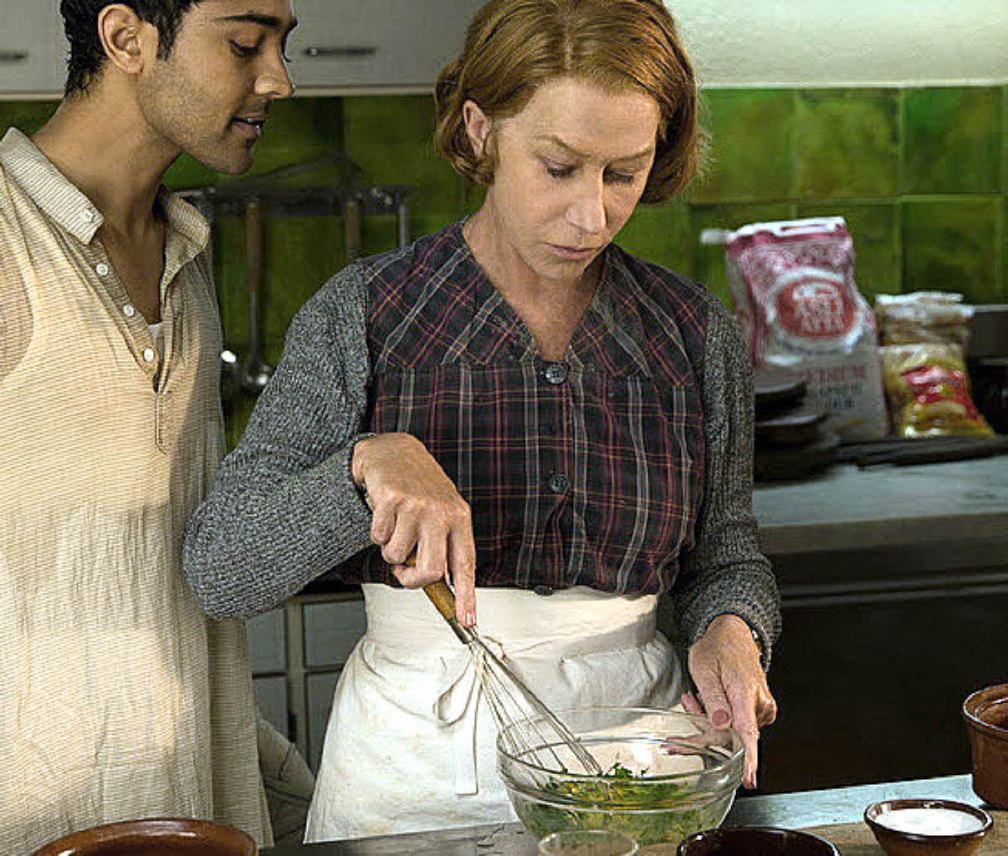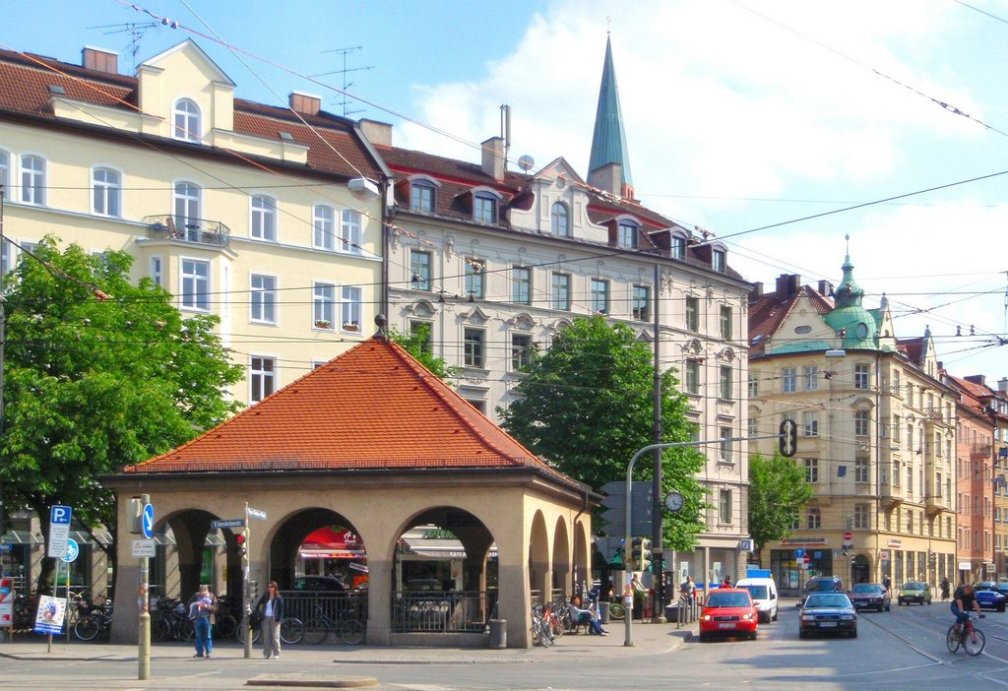Imagine a nice village in the South of France. The smell of herbs, lavender, thyme, rosemary… The quietness of a house out of the village with a marvelous sight and a restaurant with the best French cuisine ever. Does this sound attractive enough? To vary your meals you may want to eat at the other restaurant in town, an Indian specialty restaurant. In the middle of nowhere?
Sometimes we have dreams that seem risky or impossible to achieve. Other times destiny or life, as you may want to call it, puts us on a difficult path and we have to throw away our initial plans or way of life. This happened to a numerous Indian family living in Mumbai who have to leave their country and get to Europe to try to rebuild their lives. However, their first choice turns out to be cold, wet and with vegetables and fruits that have no soul. Therefore, they move again searching for a nicer place. “Destiny’ takes them to France where after some initial difficulties they can finally open an Indian restaurant.
The film “The Hundred-Foot Journey” with Helen Mirren is being shown in German cinemas as “Madame Mallory and the smell of Curry’.
(Image from http://www.badische-zeitung.de/kino-11/36-komoedien-dramen-und-dokus-aus-aller-welt–87671108.html)
The difficulties in the film are sometimes funny and sometimes rough or cruel and they involve love, hate, jealousy, talent, friendship and family… Would it be so easy in real life to move to a foreign country, let’s say in Western Europe, and simply open a restaurant? I sincerely doubt it…
In the case of the film, this part was obviously skipped because if not it would have turned into a paper war against the ministries and the immigration offices 😉
At the beginning of the film while entering the Continent the family members are asked some questions about their profession, time they plan to stay in the country, etc. This shows a little bit of it…
Some countries are more willing to receive foreigners and to let them live in their territory, others not really. All around Europe radical groups have been spreading and attacking in word and some times even in actions ‘foreign’ looking people. Who is foreign in a country? Is a person who got there as a youngster, has lived there for years, worked and paid taxes still a foreigner? France adopts immigrants more easily than other countries and helps them to settle. Some nationals believe that immigrants get too much and that they are entitled to too many social benefits while French aren’t. This leads to outbreaks of radical groups and foreigner hate.
Germany would love to receive more and more immigrants… Really? Only those young, highly educated, with lots of experience in their professions and willing to work under conditions that not many Germans would accept. In this case even bureaucracy would work smoothly and they would get the necessary help for their paperwork.
Back to our example in the film, what kind of bureaucracy, that is government administration, would the family have to deal with? I imagine at the very first, they would have had to get the visas and then the residence permits. Afterwards, the working permits, then the license to open a business and especially a business in the food area would require lots and lots of permits and fees… I don’t know, if they could have open their place in the first year. It is of course not impossible…
Now, the children… I never saw them going to school, writing their homework and learning French! This last task would take longer. I don’t really know how it works in France with children and schooling. In Germany all children have to go to school and there are only the official schools in the neighborhood. So, imagine the children who have to go to Elementary school and who don’t speak German =:-o
Bureaucracy… What does it really mean? The word bureau or office is hidden in there and office has to do with paper… Paperwork! Some countries love paperwork more than others, I suppose. In Brazil, for example, everything has to be officially recognized or you cannot even buy a cell phone. You need to have a residence permit with the necessary ID card and number and you have to have a Tax number to show that you ARE paying taxes. I still remember the very crowded offices where you have to get your documents and where you have to get your signature registered and approved. Without these steps, as I told you before, you can’t live as a person… After accomplishing all this and while living there, if you pay in the supermarket with your bank card you always have to say your tax number and sometimes your ID number, too. To get into any building because for example you have an appointment at the doctor’s or are going to a business meeting you also have to register at the entrance and give all your numbers. By the way you should know them by heart. If you don’t do so, you become immediately a suspect… of what? Of anything.
Another item that points out to my mind when dealing with anything official and bureaucracy. I don’t know why, but you’re always looked as a suspect… You don’t really feel comfortable, as if we all had something wrong to hide. Is this part of the bureaucrats school? I imagine the teachers in the bureaucrats academy: “make them feel guilty, because for sure they are. Make them suffer and don’t let them leave here fast. They have to remember us and talk about us”
In Germany bureaucracy consists of many different special forms, strict and spare opening hours, lots of rules and dont’s, but at least it works. Once you’ve read all the papers and have understood the complicated bureaucrat’s German language, then it will work. Another good thing is that they usually give you an approximate time when you will be able to get your paperwork done, and things will be ready usually on time or even before the mentioned date. That I love!
I believe that the German government loves bureaucracy and I was amazed when I found out (well, taken from Wikipedia) that “The German sociologist Max Weber argued that bureaucracy constitutes the most efficient and rational way in which human activity can be organized, and that systematic processes and organized hierarchies were necessary to maintain order, maximize efficiency and eliminate favoritism. But even Weber saw unfettered bureaucracy as a threat to individual freedom, in which an increase in the bureaucratization of human life can trap individuals in an “iron cage” of rule-based, rational control.” I also now know why a place and an Underground Station in Munich is called Max Weber. And believe it or not I always lose my way or take the wrong train in precisely that station!
(Image from http://www.panoramio.com/photo/23093419)
In other countries it doesn’t work this way and I know that I am going to miss German bureaucracy (to a certain extent ;-))
And last but not least, after watching the nice movie we enjoyed an Indian dinner and I didn’t think, not even for a tiny moment, about paperwork. Enjoy the film and your food and till next time.

